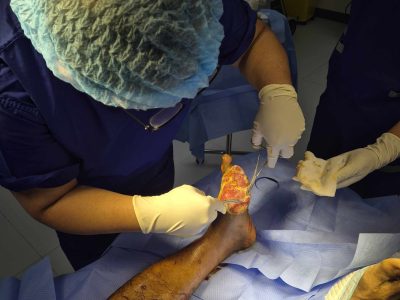Prolapse is a condition that can profoundly affect daily life, causing discomfort and reducing confidence. Whether it arises due to childbirth, the natural aging process, or other physical changes, prolapse doesn’t have to control your well-being. For residents of Fishers, IN, specialized treatment options are available to help you manage symptoms and restore pelvic health. At OPTCI in Fishers, pelvic floor physical therapy offers an effective, non-invasive solution designed to relieve symptoms and improve quality of life.
Understanding What Prolapse Is
Pelvic organ prolapse happens when one or more pelvic organs—such as the bladder, uterus, or rectum—shift downward from their normal position. This displacement occurs because the muscles and ligaments supporting these organs have weakened or stretched. Childbirth is one of the most common causes of this weakening, especially after vaginal delivery. However, aging, hormonal changes during menopause, chronic coughing, heavy lifting, and obesity can also contribute to the development of prolapse.
The pelvic floor muscles play a critical role in holding pelvic organs in place. When these muscles lose strength or flexibility, the risk of prolapse increases. Without treatment, prolapse may worsen over time, leading to increased discomfort and additional health issues.
Recognizing the Signs and Symptoms of Prolapse
Early identification of prolapse symptoms is vital for effective treatment. People experiencing prolapse often report a range of sensations and physical signs, including:
- A persistent feeling of pressure or heaviness in the pelvic area
- Noticeable bulging or protrusion of tissue in the vaginal region
- Difficulty or discomfort during urination or bowel movements
- Lower back pain or aching sensations
- A sensation of incomplete emptying of the bladder or bowels
These symptoms indicate that the supportive pelvic muscles or connective tissues need attention. Ignoring these warning signs can lead to further complications, such as urinary infections or worsening organ displacement.
How Prolapse Impacts Daily Life
Living with prolapse affects more than just physical comfort. Many individuals report a decline in self-confidence and mental well-being due to the persistent discomfort and inconvenience caused by their symptoms. Activities such as walking, exercising, or even sitting for extended periods can become challenging. Intimate relationships might also be impacted by prolapse symptoms, affecting emotional health and personal connections.
The good news is that with timely intervention, many of these challenges can be managed or alleviated, allowing individuals to return to their normal activities and feel more comfortable in their bodies.
Exploring Treatment Options in Fishers, IN
For those seeking treatment for prolapse Fishers, pelvic floor physical therapy (PFPT) is an effective and proven approach. At OPTCI in Fishers, highly trained physical therapists specialize in pelvic floor rehabilitation, offering customized treatment plans that focus on strengthening the pelvic muscles and improving tissue support.
Pelvic floor physical therapy includes:
- Comprehensive assessment of pelvic muscle function
- Targeted exercises to improve muscle tone and coordination
- Biofeedback and manual therapy techniques
- Guidance on lifestyle modifications to reduce strain on pelvic tissues
Unlike surgical options, PFPT is non-invasive and focuses on empowering patients through active recovery. It can relieve symptoms, improve bladder and bowel control, and prevent prolapse progression when started early.
Why Choose OPTCI in Fishers for Prolapse Treatment?
OTPCI stands out as a trusted provider of pelvic floor physical therapy in Fishers. Their team’s specialized expertise ensures patients receive compassionate, personalized care tailored to their unique needs. Treatment plans at OPTCI are developed after thorough evaluations, addressing both the physical and emotional impacts of prolapse.
Patients benefit from the clinic’s welcoming environment, convenient location, and a commitment to education and empowerment. Many individuals who have undergone therapy at OPTCI report improved quality of life and a renewed sense of confidence.
Tips for Managing Prolapse at Home
While professional treatment is essential, some lifestyle habits can support pelvic health and complement therapy efforts:
- Avoid heavy lifting and activities that increase intra-abdominal pressure
- Maintain a healthy weight to reduce strain on pelvic muscles
- Practice pelvic floor exercises, like Kegels, as recommended by your therapist
- Stay hydrated and consume a fiber-rich diet to prevent constipation
- Avoid prolonged sitting or standing; take breaks to move and stretch regularly
If symptoms worsen or new concerns arise, it’s important to consult your physical therapist promptly to adjust your care plan.
Takeaway
Prolapse can disrupt your daily life and affect your confidence, but it doesn’t have to be a permanent burden. Recognizing the symptoms early and seeking specialized treatment is the key to managing this condition effectively. Pelvic floor physical therapy at OPTCI in Fishers offers a safe, non-invasive way to relieve discomfort, strengthen pelvic muscles, and improve overall quality of life. Whether you are dealing with mild or more advanced prolapse symptoms, personalized care and early intervention can help you regain comfort and confidence. Take the first step today toward better pelvic health by scheduling a consultation with the experienced team in Fishers who understand your needs and are committed to helping you live well.







